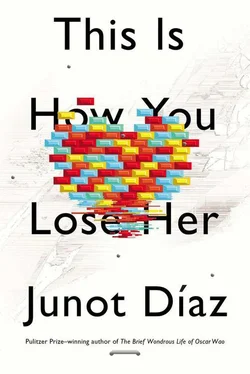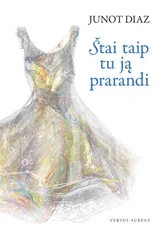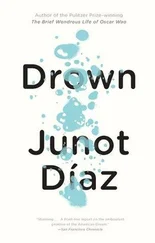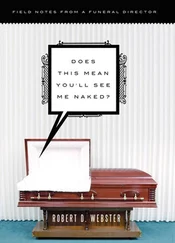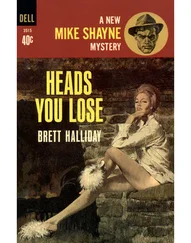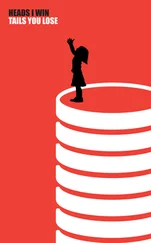Que Dios te bendiga, Pura said, fixing her top across her breasts before standing.
None of us saw Pura or her son or our car or our TV or our beds or the X amount of dollars Rafa had stolen for her ever again. She blew out of the Terrace sometime before Christmas to points unknown. The Gujarati guy told me when I ran into him at the Pathmark. He was still pissed because Pura had stiffed him almost two months’ rent.
Last time I ever rent to one of you people.
Amen, I said.
—
SO YOU’D HAVE thought Rafa would be at least a little contrite, when he finally got out. Fat chance. He didn’t say a thing about Pura. Didn’t talk much about anything. I think he knew in a real way that he wasn’t going to get better. He watched a lot of TV and sometimes he took slow walks down to the landfill. He took to wearing a crucifix, but he refused to pray or to give thanks to Jesus, as my mother asked him to. The Horsefaces were back in the apartment almost every day, and my brother would look at them and for kicks say, Fuck Jesu, and that would only get them to pray harder.
I tried to stay out of his way. I had finally hooked up with this girl who wasn’t half as fine as Laura, but who at least liked me. She had introduced me to mushrooms and that was how I was spending the time I was supposed to be in school, shrooming my ass off with her. I was so not thinking about the future.
Every now and then when me and Rafa were alone and the game was on I tried to talk to him, but he never said nothing back. His hair was all gone and he wore a Yankee cap even indoors.
And then about a month after he got out of the hospital I was coming home from the store with a gallon of milk, high and thinking about the new girl, when out of nowhere my face exploded . All the circuits in my brain went lights out. No idea how long I was down, but a dream and a half later I found myself on my knees, my face ablaze, holding in my hands not the milk but a huge Yale padlock.
Wasn’t until I made it home and Mami put a compress on the knot under my cheek that I figured it out. Someone had thrown that lock at me. Someone who, when he was still playing baseball for our high school, had had his fastball clocked at ninety-three miles per hour.
That’s just terrible, Rafa clucked. They could have taken your eye out.
Later, when Mami went to bed, he looked at me evenly: Didn’t I tell you I was going to fix you? Didn’t I?
And then he laughed.
FROM THE TOP OF WESTMINSTER, our main strip, you could see the thinnest sliver of ocean cresting the horizon to the east. My father had been shown that sight — the management showed everyone — but as he drove us in from JFK he didn’t stop to point it out. The ocean might have made us feel better, considering what else there was to see. London Terrace itself was a mess; half the buildings still needed their wiring and in the evening light these structures sprawled about like ships of brick that had run aground. Mud followed gravel everywhere and the grass, planted late in fall, poked out of the snow in dead tufts.
Each building has its own laundry room, Papi explained. Mami looked vaguely out of the snout of her parka and nodded. That’s wonderful, she said. I was watching the snow sift over itself, terrified, and my brother was cracking his knuckles. This was our first day in the States. The world was frozen solid.
Our apartment seemed huge to us. Rafa and I had a room to ourselves and the kitchen, with its refrigerator and stove, was about the size of our house on Sumner Welles. We didn’t stop shivering until Papi set the apartment temperature to about eighty. Beads of water gathered on the windows like bees and we had to wipe the glass to see outside. Rafa and I were stylish in our new clothes and we wanted out, but Papi told us to take off our boots and our parkas. He sat us down in front of the television, his arms lean and surprisingly hairy right up to the short-cut sleeves. He had just shown us how to flush the toilets, run the sinks, and start the shower.
This isn’t a slum, Papi began. I want you to treat everything around you with respect. I don’t want you throwing any of your garbage on the floor or on the street. I don’t want you going to the bathroom in the bushes.
Rafa nudged me. In Santo Domingo I’d pissed everywhere, and the first time Papi had seen me in action, whizzing on a street corner, on the night of his triumphant return, he had screamed, What in carajo are you doing?
Decent people live around here and that’s how we’re going to live. You’re Americans now. He had his Chivas Regal bottle on his knee.
After waiting a few seconds to show that yes, I’d digested everything he’d said, I asked, Can we go out now?
Why don’t you help me unpack? Mami suggested. Her hands were very still; usually they were fussing with a piece of paper, a sleeve, or each other.
We’ll just be out for a little while, I said. I got up and pulled on my boots. Had I known my father even a little I might not have turned my back on him. But I didn’t know him; he’d spent the last five years in the States working, and we’d spent the last five years in Santo Domingo waiting. He grabbed my ear and wrenched me back onto the couch. He did not look happy.
You’ll go out when I say you’re ready.
I looked over at Rafa, who sat quietly in front of the TV. Back on the Island, the two of us had taken guaguas clear across the capital by ourselves. I looked up at Papi, his narrow face still unfamiliar. Don’t you eye me, he said.
Mami stood up. You kids might as well give me a hand.
I didn’t move. On the TV the newscasters were making small, flat noises at each other. They were repeating one word over and over. Later when I went to school I would learn that the word they were saying was Vietnam .
—
SINCE WE WEREN’T ALLOWED out of the house — it’s too cold, Papi said once but really there was no reason other than that’s what he wanted — we mostly sat in front of the TV or stared out at the snow those first days. Mami cleaned everything about ten times and made us some damn elaborate lunches. We were all bored speechless.
Pretty early on Mami decided that watching TV was beneficial; you could learn the language from it. She saw our young minds as bright, spiky sunflowers in need of light, and arranged us as close to the TV as possible to maximize our exposure. We watched the news, sitcoms, cartoons, Tarzan, Flash Gordon, Jonny Quest, The Herculoids, Sesame Street —eight, nine hours of TV a day, but it was Sesame Street that gave us our best lessons. Each word my brother and I learned we passed between ourselves, repeating over and over, and when Mami asked us to show her how to say it, we shook our heads and said, Don’t worry about it.
Just tell me, she said, and when we pronounced the words slowly, forming huge, lazy soap bubbles of sound, she never could duplicate them. Her lips seemed to tug apart even the simplest vowels. That sounds horrible, I said.
What do you know about English? she asked.
At dinner she’d try her English out on Papi, but he just poked at his pernil, which was not my mother’s best dish.
I can’t understand a word you’re saying, he said finally. It’s best if I take care of the English.
How do you expect me to learn?
You don’t have to learn, he said. Besides, the average woman can’t learn English.
It’s a difficult language to master, he said, first in Spanish and then in English.
Mami didn’t say another word. In the morning, as soon as Papi was out of the apartment, Mami turned on the TV and put us in front of it. The apartment was always cold in the morning and leaving our beds was a serious torment.
Читать дальше
